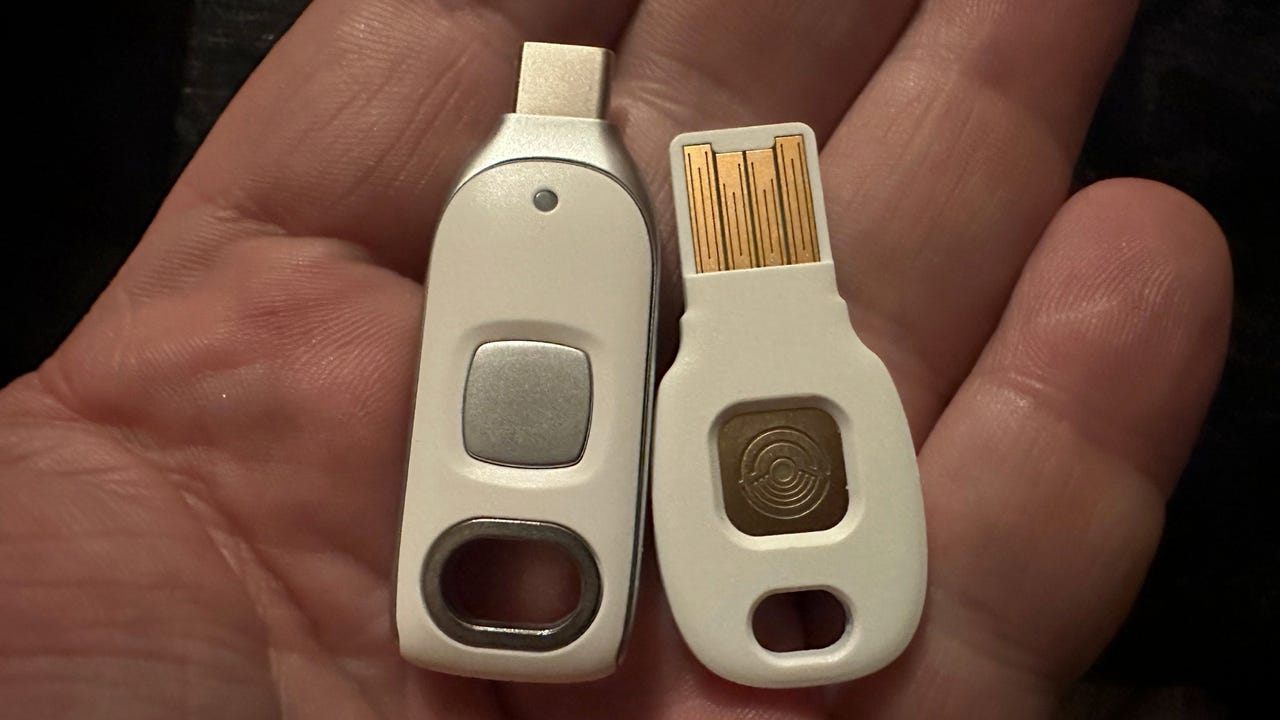'ZDNET Recommends': What exactly does it mean?
ZDNET's recommendations are based on many hours of testing, research, and comparison shopping. We gather data from the best available sources, including vendor and retailer listings as well as other relevant and independent reviews sites. And we pore over customer reviews to find out what matters to real people who already own and use the products and services we’re assessing.
When you click through from our site to a retailer and buy a product or service, we may earn affiliate commissions. This helps support our work, but does not affect what we cover or how, and it does not affect the price you pay. Neither ZDNET nor the author are compensated for these independent reviews. Indeed, we follow strict guidelines that ensure our editorial content is never influenced by advertisers.
ZDNET's editorial team writes on behalf of you, our reader. Our goal is to deliver the most accurate information and the most knowledgeable advice possible in order to help you make smarter buying decisions on tech gear and a wide array of products and services. Our editors thoroughly review and fact-check every article to ensure that our content meets the highest standards. If we have made an error or published misleading information, we will correct or clarify the article. If you see inaccuracies in our content, please report the mistake via this form.
Hands on with Google's new Titan Security Keys - and why they still have their place

Google's updated Titan Security Keys.
ZDNET's key takeaways
- Google's updated Titan security keys are available now with prices starting at $30.
- Updated keys all feature NFC and can store up to 250 passkeys.
- The USB-C key is quite bulky, as is the USB-A to USB-C adapter that comes with the USB-A key.
While passkeys are all the rage right now, a smartphone or other device-based solution isn't for everyone, which means there's still a place for physical security keys.
Google's response is to announce an update to its Titan line of security keys, bringing them up to date by adding some much-needed features.
Also: What are passkeys? Experience the life-changing magic of going passwordless
If you're new to security keys, you should think of them as an additional line of defense for your online life. A hacker might have compromised your password, but without access to your physical security key, their ill-gotten gain is valueless.
View at Store.googleThere are two new Titan keys in the line -- coming in USB-A and USB-C flavors. Both are FIDO2 compatible, which means the devices are compatible with the broadest number of websites and online services, and both have enough built-in storage to store up to 250 unique passkeys.
Google Titan Security Keys tech specs
USB-A/NFC Security Key
- Length: 1.7 inches (43.9mm)
- Width: 0.8 inches (20.8mm)
- Height: 0.1 inches (3.1mm)
- Color: White
- Materials: ABS, Calcium carbonate
- For use with computers that have USB-A or USB-C ports. Will also work with most Android and iOS devices that support USB or NFC.
USB-C/NFC Security Key
- Length: 2.0 inches (50.9mm)
- Width: 0.7 inches (18.5mm)
- Height: 0.3 inches (7.0mm)
- Color: White
- Materials: Polycarbonate + Zinc Alloy
- For use with newer computers that have USB-C ports. Will also work with most Android and iOS devices that support USB or NFC.
Rear of Google Titan Security Keys -- USB-C on the left, USB-A on the right.
Also, the USB-A version comes with a USB-A to USB-C adapter.
Also: The best security keys to protect yourself and your business
That adapter means the key can be used on modern devices, which makes it a future-proof purchase.
The USB-C Google Titan Security Key.
The USB-C Titan key is quite a chunky affair, having a bit of heft and thickness to it, coming in at 0.3 inches (7.0mm) thick.
Built from polycarbonate and a zinc alloy, this key looks like it's capable of surviving a hard life on a keyring full of keys.
The USB-C Google Titan Security Key is the chunkiest and thickest security key I own.
The USB-A Titan key is a more traditional, flat-style security key, made of ABS and coming in at only 0.1 inches (3.1mm) thick.
The USB-A Google Titan Security Key.
This key also comes with a chunky USB-A to USB-C adapter, so it can be used on devices no matter what port they use.
The chunky USB-A to USB-C adapter.
The new Google Titan Security Keys are priced at $30 for the USB-A/NFC version, and $35 for the USB-C/NFC version.
